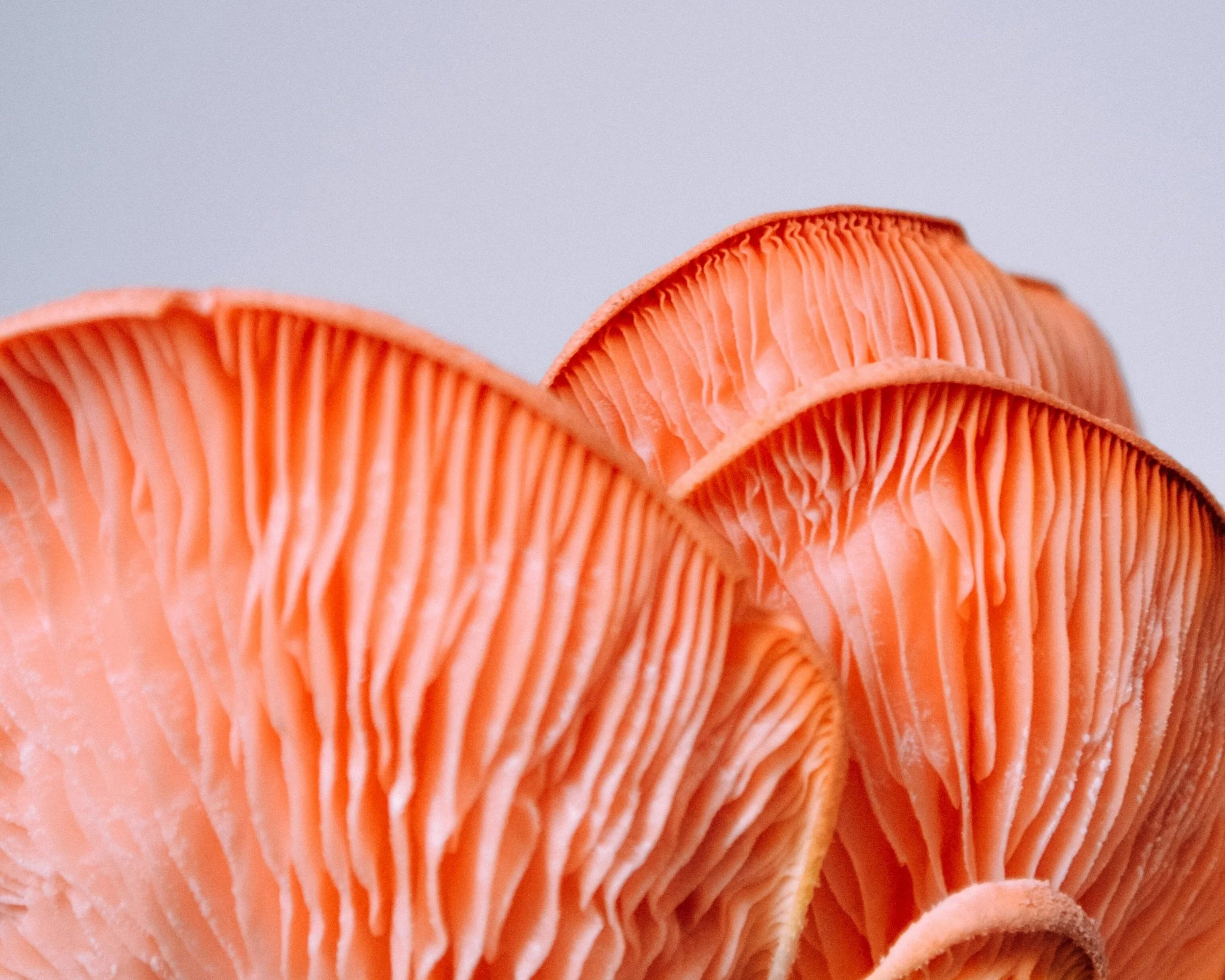Mushroom Magic: Exploring the Health Benefits of Functional Mushrooms
Functional mushrooms, also known as medicinal mushrooms, are a group of fungi that have been used for centuries in various traditional medicine systems, particularly in Asian cultures such as Chinese, Korean and Ayurvedic medicine. These mushrooms are believed to offer various health benefits and are often consumed for their potential medicinal properties. In fact, in Japan, turkey tail has been used to strengthen the immune system when given with standard cancer treatment.
But how exactly do they work?
The exact mechanisms of how they work depends on the specific mushroom as each have a different composition of bioactive compounds. Broadly however, functional mushrooms contain the following:
Beta-glucans - these are polysaccharides that reside in the cell walls of mushrooms and have been associated with immune modulation. Oats also contain beta-glucans.
Triterpenoids/Triterpenes - this is a compound found in not just mushrooms, but ferns, animals and marine organisms. Triterpenoids have been studied for their potential anti-inflammatory, antioxidant, and anticancer properties.
Sterols (Ergosterol) - These are compounds similar to cholesterol and support not only the cardiovascular system but also support the immune system.
Vitamin D2 - Mushrooms (including the humble button mushrooms you find in the supermarket) are one of the few non-animal sources of vitamin D. When exposed to sunlight or ultraviolet (UV) light, ergosterol in mushrooms can be converted into vitamin D2. Vitamin D is again very immune supporting.
In addition to these, mushrooms also contain amino acids, antioxidants and enzymes - all of which are beneficial for human health.
Most of the functional mushrooms available (e.g. lions mane, cordyceps, turkey tail, chaga etc) are considered adaptogens which means they may help the body adapt to stressors (work, family, exercise etc) by influencing the adrenal glands and the production of stress-related hormones like cortisol which in turn, promotes balance within the body.
What are the different types of Functinal Mushrooms?
Antiviral & Antimicrobial Properties - Maitake and shiitake, are believed to have antiviral and antimicrobial properties. Research has suggested potential benefits in fighting infections, though more studies are needed to confirm these effects.
Immune Support - Some functional mushrooms, such as reishi, chaga, and maitake, are believed to modulate/regulate the immune system. They may enhance immune function in cases of weakened immunity or help prevent excessive immune responses, such as inflammation.
Neuroprotective Effects - Lion's mane has been studied for its potential neuroprotective effects and enhanced cognitive support. It’s thought that the compounds in this particular mushroom may support nerve growth, neuroplasticity (ability of neural networks in the brain to change through growth and reorganise), cognitive function and more. There needs to be more human studies but the studies that have been conducted are promising. One double blind placebo study in Japan found that consumption of Lion's mane for 4 weeks significantly increased cognitive function scores compared with the placebo.
Anti-Inflammatory Effect - Certain mushrooms, including reishi and cordyceps, are associated with anti-inflammatory properties. Chronic inflammation is linked to various health issues, so substances that can help modulate inflammation are promising.
Are they suitable to everyone?
We would always recommend you check with your healthcare provider or a practitioner who knows about your case history to prevent any potential side effects or interactions. Broadly speaking, pregnant or breastfeeding women, children, individuals with existing health conditions, or those on medication need to get personal guidance before consuming.
What are the mental and physical benefits?
There is a lot of science now showing us the mental and physical benefits of medicinal mushrooms. Certain mushrooms like Lion's Mane are known for improving cognitive function, supporting productivity, focus, mood, and overall brain function. Lion's Mane for instance, contains compounds like hericenones and erinacines that can stimulate the growth of brain cells and can give us the same alert feeling that we can get from caffeine.
Separately, when we are stressed, mushrooms such as Reishi have been found to help the body cope with physical and mental stress more effectively. They do this by acting as adaptogens, supporting the body's general resistance to stress by balancing vital systems like the nervous and immune systems. We have started to see a reduction in symptoms like insomnia, low mood, and fatigue when used in the right dose for the right period.
From a physical perspective, we have seen plenty of science which shows how mushrooms can support a healthy immune system through various mechanisms. One mechanism is by enhancing the gut microbiota. They do this by modulating the immune system via their bioactive components like beta-glucans that have immune-stimulating properties. These beta-glucans can also positively impact heart health and energy by supporting the cardiovascular system and the body’s ability to increase endurance, athletic performance, and improve the body's oxygen utilisation.
They literally are wonder foods to us, they help with quite a few complaints and we’ve seen some brilliant results with them.
Any side effects or down falls?
There are some common side effects which are pretty rare but include mild stomach discomfort or headaches. It's crucial to follow recommended dosages with mushrooms (and all supplements to be honest, unless working with a practitioner and they’ve altered doses for health reasons) - this is for lots of reasons, but also because the source of one mushroom can be different to another so potency and strength can differ. Some mushrooms, like Chaga, may interfere with blood-thinning medications or pose risks for individuals with bleeding disorders. So we always caveat that it's important to consult a healthcare provider before using medicinal mushrooms, especially if you have pre-existing health conditions or are on medication.




